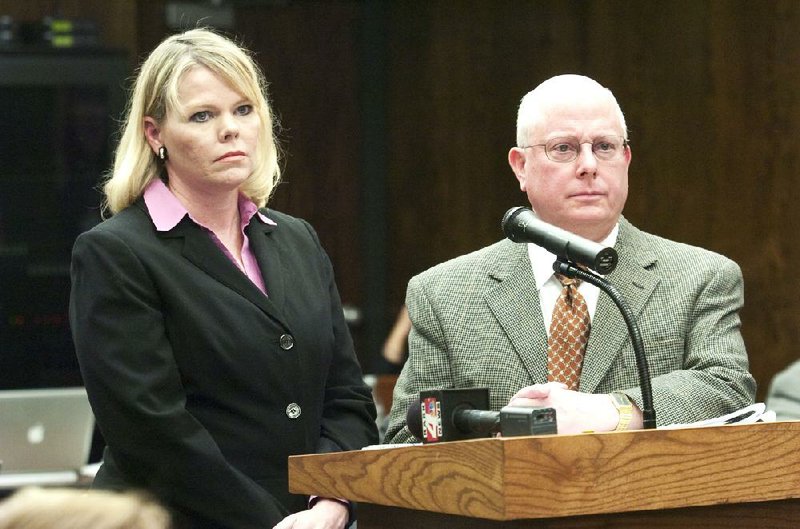LITTLE ROCK — Members of the Arkansas Board of Education questioned on Monday whether proposed rules on religious instruction in preschools that receive public funding would adequately shield the state from potential lawsuits.
The draft rules, created by the Arkansas Department of Human Services, would prohibit agencies that receive publicly funded Arkansas Better Chance grants from leading religious instruction,Scripture reading and prayer during the seven hours of instructional time mandated by the preschool program.
“Those kids are there because the program exists, because of public funding,” board Chairman Ben Mays of Clinton said. “I think I’m not the only one concerned with this situation, and I’ll have trouble voting for this as is.”
The board approved sending the rules for public comment. Final approval would require a vote of the board and approval by the Rules and Regulations Committee of the state Legislature.
The Arkansas Better Chance program, which funds preschool programs for low-income children, is created and funded by the state Department of Education and administered by the Human Services Department.
Human Services officials created the draft rules after Americans United for Separation of Church and State complained that three Northwest Arkansas preschools owned by state lawmakers were violating the First Amendment of the U.S. Constitution by using public money to fund religious instruction.
Americans United said they have no immediate plans to file a lawsuit.
The First Amendment “prohibits any state or federal law respecting an establishment of religion, or prohibiting the free exercise thereof,” the proposed rules said.
Growing God’s Kingdom, a West Fork preschool owned by Rep. Justin Harris, R-West Fork, has received $2.6 million in grants through the Arkansas Better Chance program since 2005, Human Services spokesman Amy Webb has said.
Noah’s Ark Preschool and Open Arms Learning Center, owned by Sen. Johnny Key, R-Mountain Home, have received $1.3 million through the program since the 2007-08 school year, she said.
Human Services staff on site visits to the preschools noted religious elements such as designated times for prayer and Bible study,a pledge of allegiance to a Christian flag and children singing “Jesus Loves Me.”
Representatives from Americans United have said they would seek to remedy their concerns outside of court.
Harris told the Democrat-Gazette this month that he would consider filing a lawsuit or no longer accepting the grants if the rules are passed in their current form. He has committed to holding religious instruction after the seven-hour window passes until the rules are finalized.
Breck Hopkins, chief counsel for the Human Services Department, said the agency “walked a fine line” in drafting the proposed rules, seeking to honor the law without being too restrictive.
“Once the public assistance stops, so does the government’s authority to tell you what you can and cannot say,” he said.
No parents of children enrolled in the Arkansas Better Chance program have complained about religious instruction, Hopkins said.
Board members - including Mays and Sam Ledbetter, a Little Rock attorney - said Monday that they were concerned that low-income parents in rural communities may not have the choice of several preschools funded by the grants, leaving religious providers as their only option.
Young children with working parents would then be a “captive audience” for religious instruction while they wait for their parents to pick them up, they said.
“What would be the error in defining the school day as when the child gets there in the morning until when they go home?” Mays said.
Hopkins said the courts may view that change as overly restrictive or discriminatory toward religious entities participating in the program.
“The courts have been clear that you don’t have to draw the line that sharply,” he said. “You don’t have to go down to the penny to be constitutional.”
Hopkins stopped short of guaranteeing the rules would be deemed constitutional if challenged in court.
The rules represent “our best estimate of the middle of the road,” he said. “We’ve given our best shot where the judiciary ... would agree that we’ve tried to get it right.”
Arkansas, Pages 7 on 02/14/2012
